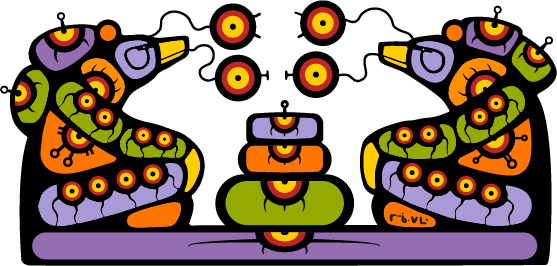Holly Toulejour
Producer & Host
Holly Toulejour is a Dene woman from La Loche, Saskatchewan. She grew up in La Loche and then left to study to become a social worker. She worked in her home community before returning to the south for more educational opportunities. She recently graduated from the University of Victoria with a Masters in Social Work. She says the coolest thing about her is that she’s a mom to Kiedis Hayden who is 14 and Maddie Zoe who is 7. They live in Prince Albert.
The second coolest thing about her is that she’s a fluent Dene speaker: “English is my second language and I am so proud to say this. Dene was spoken in every household when I was growing up.” Her school, however, did not offer any instructions in Dene; it was strictly English but she says this has improved since and now there is Dene content offered.
Holly is an advocate for and creator of Dene content, and has just launched a new pîkiskwêwin podcast series, Dene Teachings About Resilience.
As a Mental Health Therapist, Holly sees the increasing prevalence of mental health issues and the need for more information to be shared in a way that is digestible for people. This need and her children inspired Holly to envision this new podcast series. “I wanted to be able to support my kids if they ever struggled. And I know that’s the same for other parents. But maybe they don’t know how,” said Holly. She wants to support others, especially parents and other Dene people, by providing access to information in their own language. She approaches the series from a strength-based perspective, sharing stories of resilience and highlighting what has worked. “It’s a contribution to not just Dene speakers but anyone who’s interested in knowing –here’s the intervention that worked for some people. And here’s what after care looks like, you know, stories of people in recovery,” she said.
While the series provides information for anyone looking for support with mental health challenges, it also recognizes challenges unique to Dene and Northern people, including environmental factors, but also barriers to people accessing services in their home communities, which Holly said often comes down to issues of trust and confidentiality. “Mental health is still such a taboo topic for people and I wanted it to be accessible. So we don't have high rates of suicide anymore, and so people who do struggle with mental health reach out sooner rather than later, before they have a full-on diagnosis,” she said. She also highlighted the realities of long wait times to receive support and the fact that “we [Indigenous people] are still getting harmed in the healthcare system.”
For Holly, at the end of the day, it’s about supporting others and about eradicating the stigma around mental health and, often, around medications used to manage symptoms. It’s also about providing the information in a way that’s accessible, convenient and easily digestible. “I wanted something people could listen to in a short amount of time, on their drive to work or to the city, or on a six-hour drive to buy groceries or go to a dentist appointment,” said Holly.
Listen to the first two episodes of Dene Teachings About Resilience.
Mental Health Crisis Support Lines
Organizations and Resources
NITHA
Saskatchewan Prevention Institute
Mental health commission of Canada


